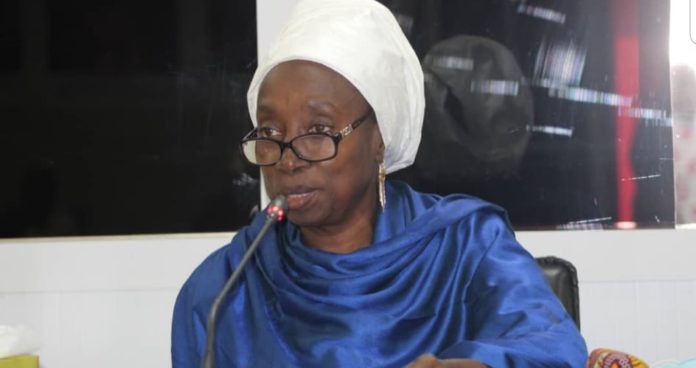Amie Bensouda has testified that former President Yahya Jammeh and his military council asked her and her team to draft decrees and they did.
“No, they did not come up with a draft. They asked us to provide a draft. Yes, we did but even if I wasn’t there, whether they would eventually have gotten somebody else to draft something, I believe so. But we were the ones there, they asked us to draft it and we did,” she told the TRRC on Tuesday.
Bensouda went up with TRRC’s lawyer Sagar Jahateh who quizzed the veteran lawyer from every available angle on the decrees Jammeh ruled by between 1994 and 1997. The constitution played second fiddle to the decrees which have been much savaged as bad laws that sought to protect Jammeh and enabled him to violate the rights of citizens.
“The fact of the matter is that this is not a hypothetical situation, you were the one on the ground, you were there, you were attorney general at the time and therefore you would have only been the one to do the job at that time and you did it,” Jahateh fired back when Bensouda told her the junta could have gotten someone else to draft the decrees. Bensouda reacted back by agreeing she was indeed the one who did the job.
“And that is what I wanted you to take responsibility for?” Jahateh told her.
“What is there to take responsibility for?” Bensouda asked.
“That you assisted them to draft the decrees,” Jahateh replied.
According to Mrs Bensouda, it was her role as the acting attorney general to “receive their instructions, to in turn instruct the parliamentary council and I did”.
“Very well, we will take that answer and I will leave it to the commission to decide,” Jahateh reacted.
“Whether I take responsibility for the decrees?” Bensouda enquired.
“That was not my question. My question was that you were assisting them. That is all I said. I did not say you came up with the concept or the idea. That has already been well established. You could have said no,” Jahateh said.
Bensouda replied: “I could have said no probably but as far as I was concerned, what weighted on me was the public interest. What was in the interest of the public at that time. Could we contain the excesses of the military? Certainly decrees were needed. Not for the benefit of the military but for the benefit of the people.”
“Are you saying Mrs Bensouda that these military decrees actually benefitted the public and they were in the interest of the public, escpecially considering all the evidence that we have received that this was a tool by Yahya Jammeh to entrench himself in power in this country?” Jahateh then asked her.
She then replied: “The decrees that I drafted was in the interest of the public. How the public chose in 1997… Instead of repealing these decrees, they were incorporated in the 1997 constitution. The greatest part of the violation of rights which occurred in this country occurred after the 1997 constitution came into effect. Those decrees are still in our statute books. That is the choice of the Gambian people, not the solicitor general or Mrs Bensouda.”









